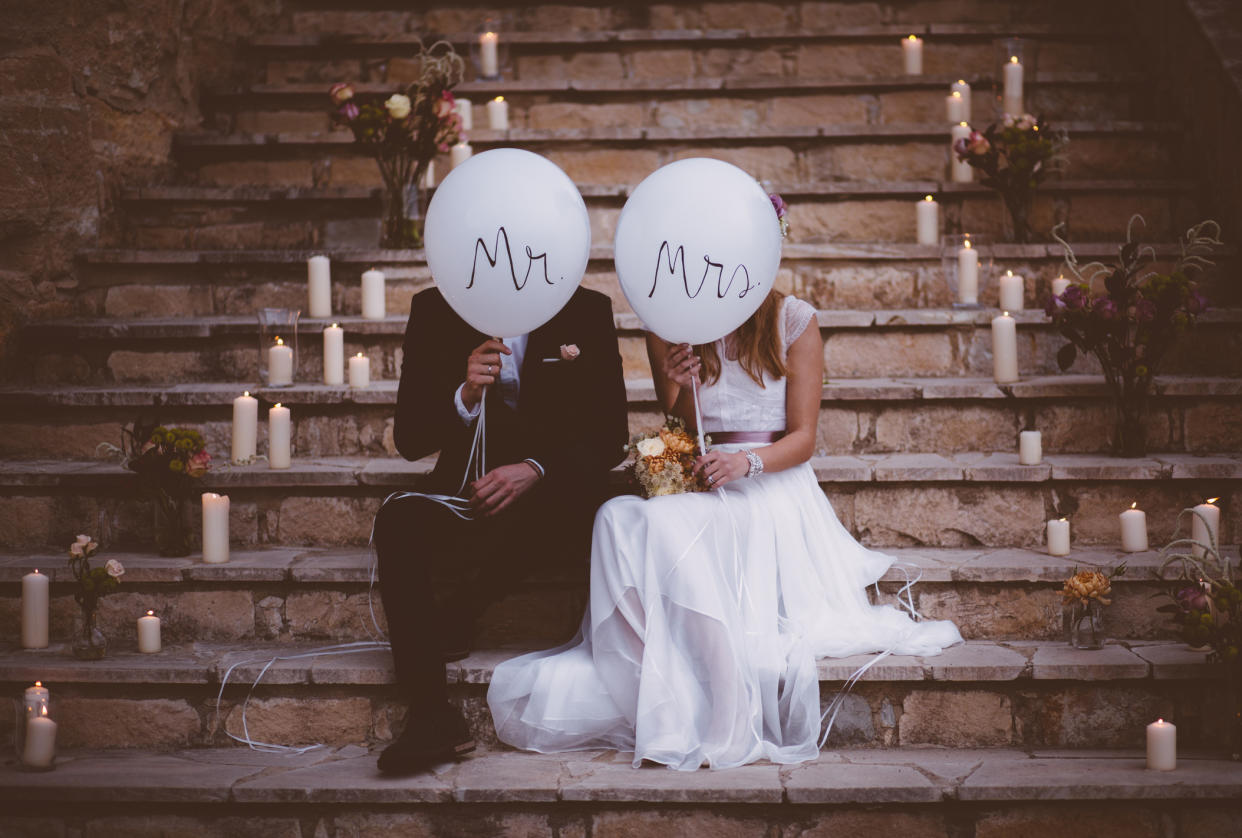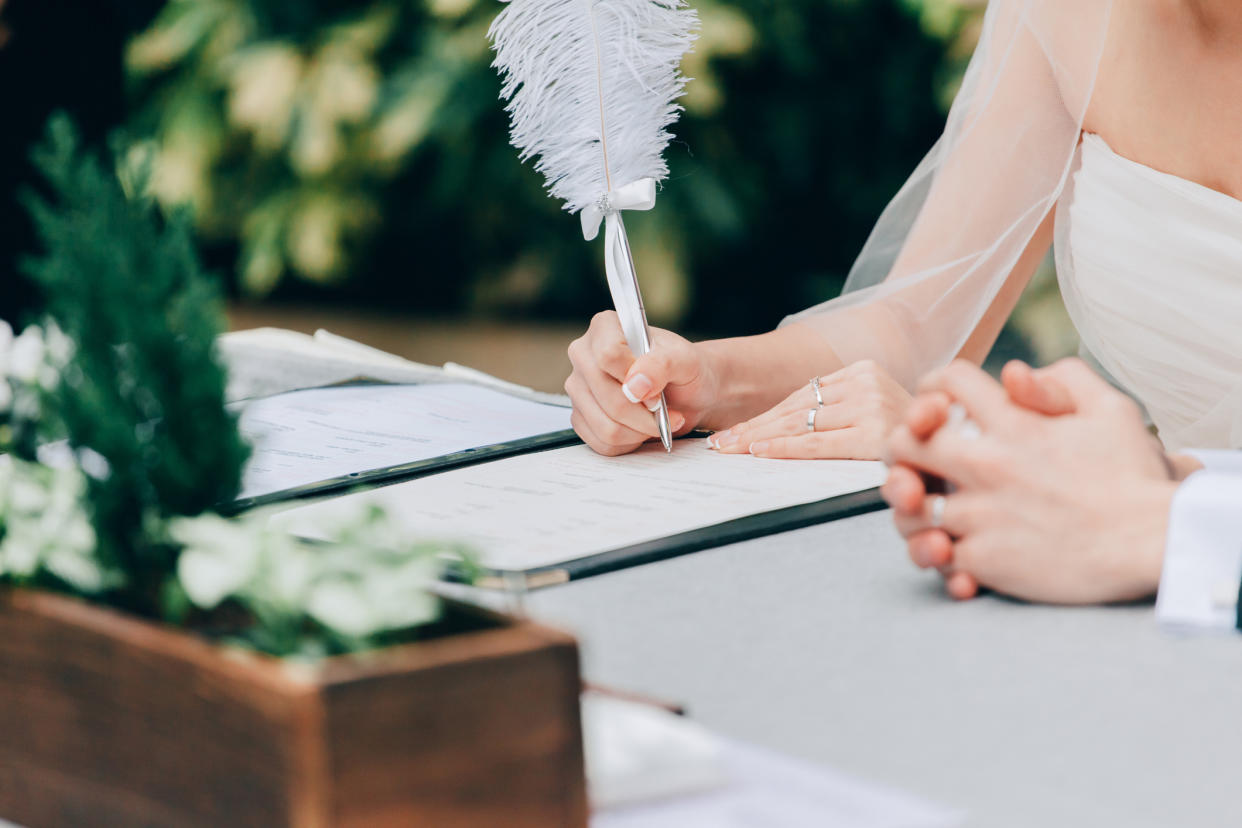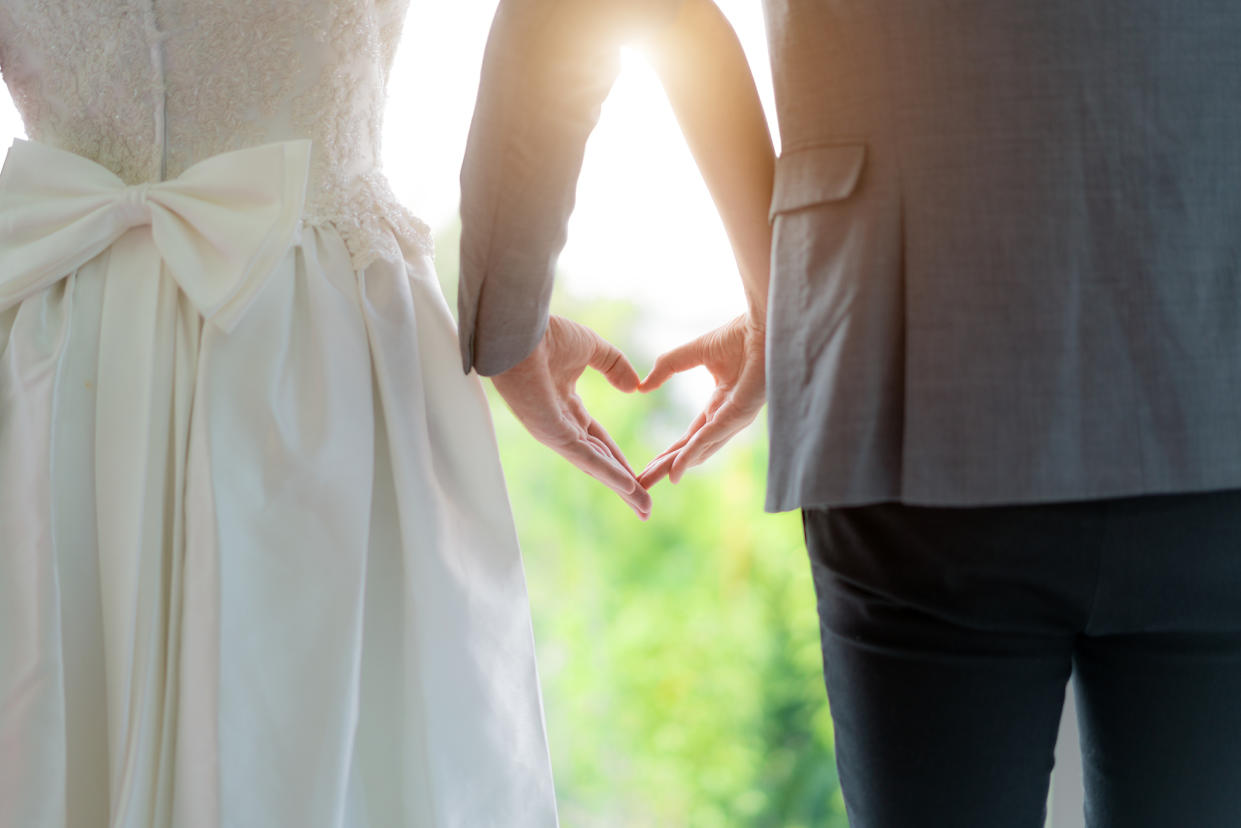1 in 5 brides admit they’d refuse to take their husband’s surname

Almost a fifth of brides have revealed they would refuse to take their husband's surname in new research that suggests many couples are shunning wedding tradition.
Whether or not to change your name after marriage is increasingly becoming a topic of debate, but while the majority of brides (84%) say they have or would change their moniker post-wedding, a growing number (16%) are breaking away from protocol, sharing they wouldn’t want to or haven’t changed their name after tying the knot.
While the onus has traditionally fallen on wives to change their name following their nuptials, modern couples are exploring other options when it comes to post-wedding surnames with over a third (35%) of grooms revealing they have or would choose to change their surname to their partners.
The research, by Guides for Brides also found that one in six couples would choose or have chosen to go for a double-barrell surname after marriage, merging together both their surname and their partner’s in a thoroughly modern solution.
Cécile Mazuet-Eller, founder and managing director of NameSwitch, believes more men are now joining the newlywed name switch crew, while double-barrell surnames are also becoming "increasingly popular".
"We still see the vast majority of women going down the traditional route and taking their partner’s surname, but men changing their surname has increased massively," she explains.

Speaking about the growing trend, which she believes has tripled in the last three years, Mazuet-Eller says grooms will sometimes opt for their bride's name if they have really popular surnames like Smith or Jones.
"They may also choose to take their wife's name if she is the end of a family line," she adds.
"Double-barrelling is also becoming really popular," she continues. "Traditionally the man's name was second, but nowadays people do what sounds right."
Another trend in post-wedding name changing, according to Mazuet-Eller, is meshing.
"This is where you fuse two names together, like Brangelina," she explains. "For example, Dawn Porter became Dawn O’Porter after marrying Chris O'Dowd.
"We have also seen some families coming together to create team names. I get excited about that because they’re basically setting a new line in the sand."
One of the reasons people do something different, like meshing, Mazuet-Eller says, is because they’ve tried double-barrelling and it didn’t sound or feel right.
"We’re finding same-sex couples might be a bit bolder to mesh," she continues. “People can also make their maiden name their middle name, with a quarter of brides at Name Switch opting to do that."

What's in a name?
As indicated by the new research, the number of brides choosing to adopt their new husband's name has been reducing recently. While 84% of British women still opt to take their new husband's surname today, this is down from the almost 90% in a 2016 survey.
Although these figures are lower than they were in 1995, when 94% changed their surname, according to a Eurobarometer survey, the practice remains something of a social norm.
The authors of a paper exploring the marital name change in Britain and Norway explain that the practice of taking a husband's name is steeped in patriarchal history.
"Under the medieval legal doctrine of coverture a wife, her children, and her property, became the husband’s possession," the authors explain.
"When hereditary surnames emerged, married women were left with no surname at all and lost named identity, except ‘wife of X'."
There are, of course, numerous personal reasons a woman might want to ditch her maiden name, but the authors of the paper have identified two main driving forces which seem to be leading the trend.
The first, perhaps unsurprisingly, is the desire to stick to tradition, the second is that having the same name as your partner, and any potential children, is seen as a strong symbol of commitment.
Watch: 'We kept our wedding secret to save money - we ate KFC then surprised our guests'
However, some people have mixed feelings about changing their name after marriage because this is an essential part of their identity, which should not be forgotten just because they get married.
"Our name forms a huge part of our identity as a human being, it’s usually been given to us from the beginning of our life and from that moment it’s been who we are known to be – and this defines who we are," explains Dipti Tait, psychotherapist, and author of Planet Grief.
"When we are expected to give that name up because we are getting married for example, this can be a huge challenge for some because it perhaps feels like a tradition that is steeped in inequality and raises questions about where these ideas may have stemmed from."
Tait says that because the original reason for a name change was to keep the male family line going, many may now believe this is outdated.
"In the past, a female would take on their husbands surname when they got married because it was the done thing," she explains. "It also was something that may not have been questioned in the past as a choice.
"Because this tradition has been so deeply ingrained in society, it has only been a recent (in the last 20 years) where not taking on the husband’s name, or double-barrelling both the names is not seen as such a radicalised idea."
Weddings: Read more
Bride who lost her sight asks guests to wear blindfolds so they can experience wedding as she does (Yahoo Life UK, 5-min read)
Why do brides throw their bouquets at weddings? (Yahoo Life UK, 2-min read)
What’s the price of being a wedding guest in 2023? (Yahoo Life UK, 3-min read)


